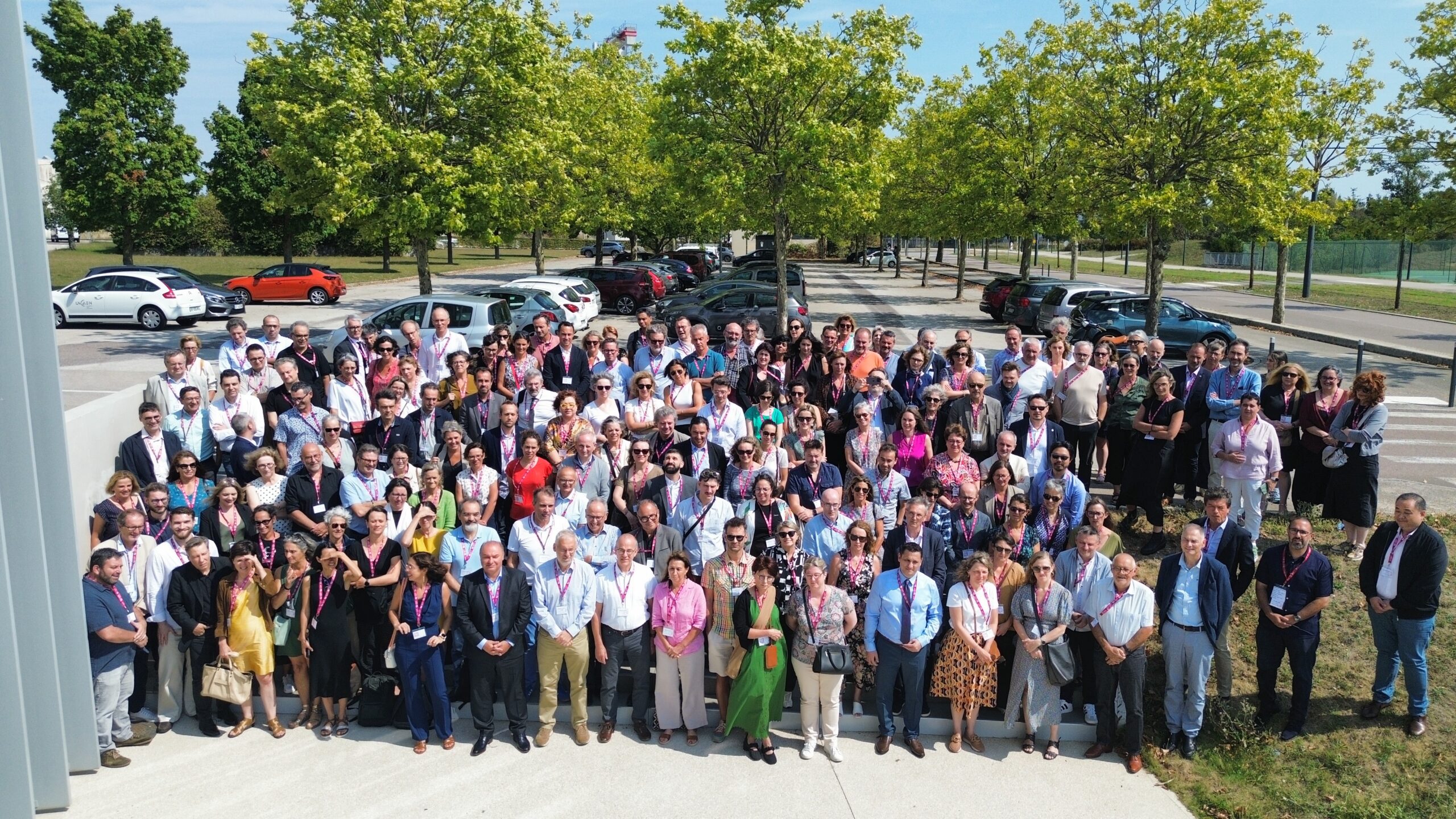R3Sup and VP Research and Development 2025 Symposium: Université Bourgogne Europe, epicentre of French research

On 25, 26 and 27 August, University Bourgogne Europe (UBE) hosted the VP Research and Development and R3Sup 2025 Conference. This event, which brought together key players in higher education and research (ESR), took place in a collaborative atmosphere.
Organised by the Network of Research Managers in Higher Education and Research Institutions (R3Sup) and the Network of Vice-Presidents for Research and Development, this symposium provided an opportunity to address the current and future challenges facing French research, while promoting exchanges between professionals. The event was opened by Vincent Thomas, President of the UBE, Nadine Millot, Vice-President for Research at the UBE, and Denis Hameau, Deputy Mayor of Dijon and Metropolitan Councillor for Higher Education and Universities, Dijon Métropole.
The simplification project was the focus of numerous round tables, whether during the presentation by Claire Giry, President of the ANR, who outlined the five new simplification measures in the 2026 action plan, or during the presentations by the presidents and directors of the National Research Organisations (ONR), commenting on the objective announced by the Minister for Higher Education and Research of having 80% of Joint Research Units (UMR) under Global Management Delegation (DGG) by 2027. Mehdi Gmar, Deputy Director General for Innovation at the CNRS, took the opportunity to make an announcement: ‘Antoine Petit will write a letter to all university presidents to propose a working document on the distribution of UMRs in DGGs.’ Lamri Adoui, president of France Universités, replied, ‘Universities are asserting their leadership role: there is nothing to stop us from taking the lead and not waiting for the CNRS to send us a letter.’
France’s decline in international rankings was the subject of fascinating and passionate analysis and debate.
Many other topics at the heart of the new academic year were discussed: academic freedom, the impact of artificial intelligence on research, and methods of promotion and cooperation with public and private partners. These discussions enriched the debate and led to operational proposals for institutions.
One of the highlights of the conference was the presentation by Coralie Chevallier, President of the High Council for Evaluation of Research and Higher Education (Hcéres). She offered a structured reflection on this topic: “Questions surrounding the timing of evaluations revolve around three concepts: how to reduce the time spent evaluating an institution, how to reduce the time spent producing an evaluation, and what is the best interval between two evaluations for the same institution? ” These remarks fuelled a rich debate on the need to make evaluations more efficient while ensuring their rigour, so that institutions and laboratories can focus on their research and innovation missions.
This conference was therefore an essential event for stakeholders in higher education, research and innovation in France. It provided an opportunity to explore in depth the strategic and operational issues shaping the future of these fields. These discussions strengthened collaborative ties within the networks involved, laying the foundations for a more integrated and forward-looking approach to dynamic French research on an international scale.
Find out more about the conference programme: https://vpr3sup2025.sciencesconf.org/?lang=fr